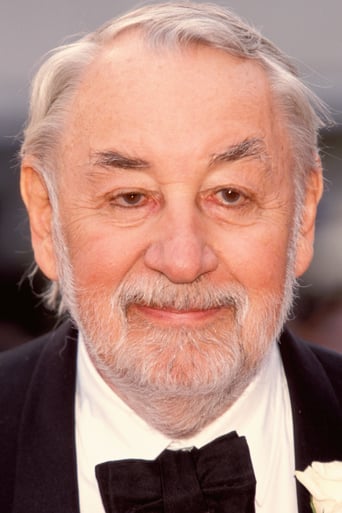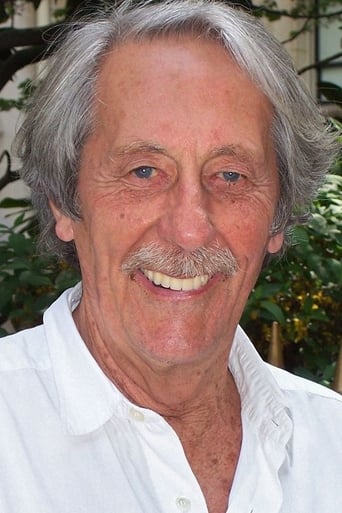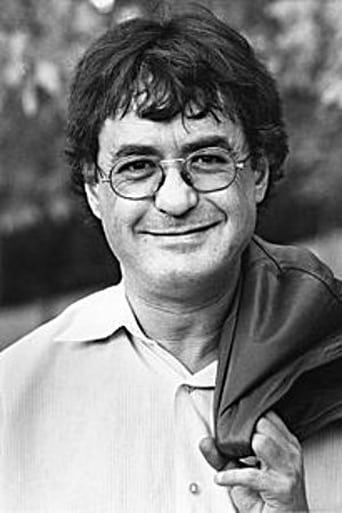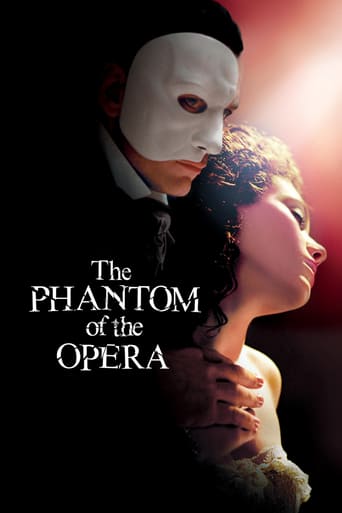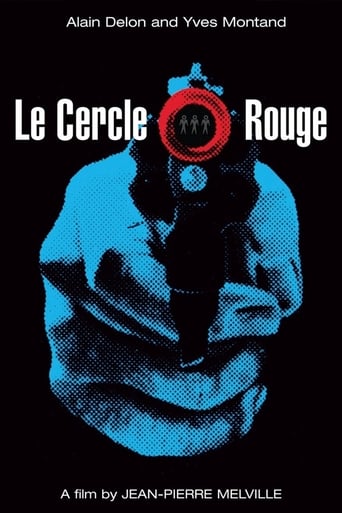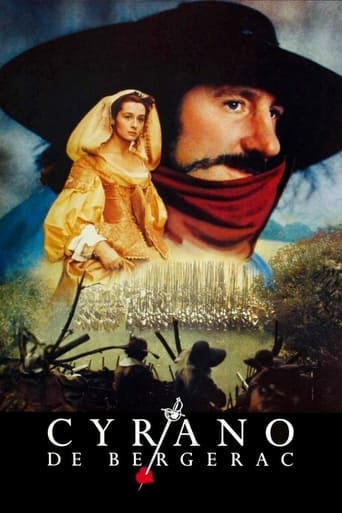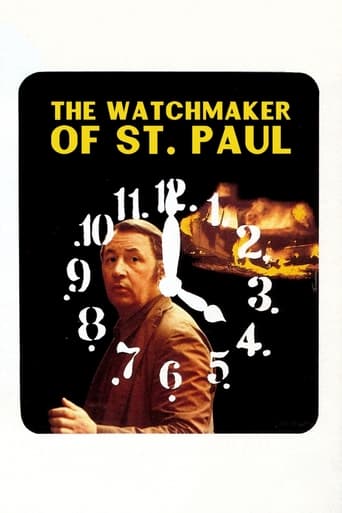
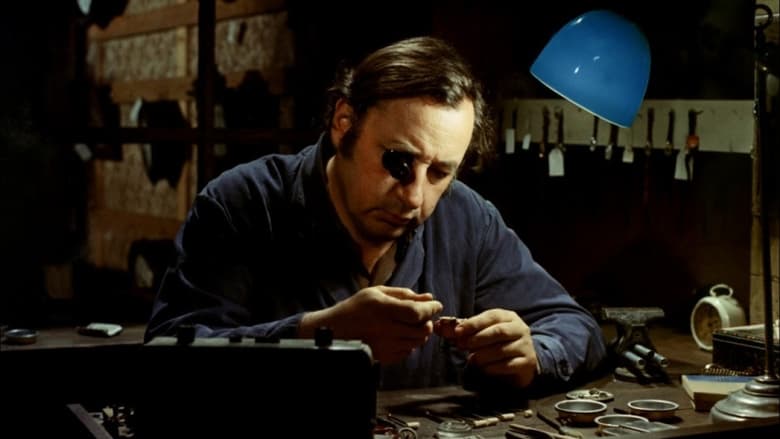
The Watchmaker of St. Paul (1974)
Lyons, France. Michel Descombes is a watchmaker who lives alone with his teenage son Bernard. When the police visit and informs him that Bernard killed a man and is on the run with a girl, Michel realizes that he knew far less about his son than he thought .
Watch Trailer
Cast
Similar titles


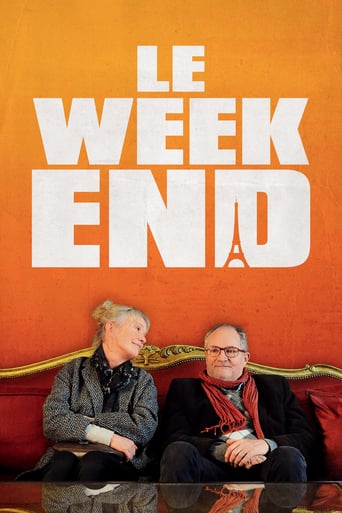
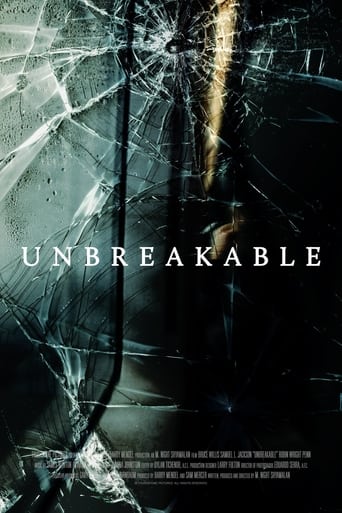
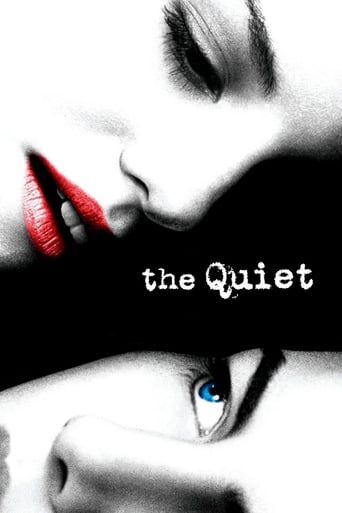
Reviews
Very best movie i ever watch
Let's be realistic.
Awesome Movie
A great movie, one of the best of this year. There was a bit of confusion at one point in the plot, but nothing serious.
"Your son killed a man...We don't know why." The cause of the movie is the murder. The purpose of the movie is to look closely at Michel Descombes, the father. The Clockmaker (l'Horloger de Saint-Paul) is not a murder mystery. Were it not for the skills of Bertrand Tavernier and his frequent lead actor, Philippe Noiret, we might be in for a long, introspective slog full of what it means to be a solitary human being. With these two, and with Jean Rochefort as Inspector Guilboud, we have a movie that explores loneliness, friendship and, eventually, understanding with a good deal of depth and style. Descombes is a self-contained man, friendly enough, probably what he thought of as a reasonably good parent, but not an especially happy man. "You're a widower?" a policeman asks. "No, not exactly," he says. "We were already separated. I guess I am a widower. I was just as miserable as one." Descombes struggles to understand his young son. Inspector Guilboud struggles to understand the son's motive, and then to understand the father. The more they learn, however, the more the fact of the matter stays the same; the son murdered a man. "I killed him because he was filth," Bernard Descombes eventually declares. Guilboud finds some empathy with Descombes. Even so, Descombes' son will be caught. "France is a funny country," Guilboud says. "Fifty-million inhabitants, twenty million informants." Descombes' son seems to represent more than just another murderer to Guilboud, a man with his own issues. He may see something of himself in Descombes. It is Descombes, however, who has to make the hardest journey, to try to understand who is son is. The Clockmaker turns out to be one of the most interesting of the collaborations between Tavernier and Noiret, even with the now dull political subtext of complacent and suffocating French society. Still, the movie was made in 1974, an uneasy period. The movie finds itself, however, and the last twenty minutes are powerful minutes. "I stand by my son...in complete solidarity." Without Noiret, this movie would not have worked at all well, in my opinion. With Noiret and Rochefort, it works very well. Other films by Tavernier and starring Noiret that I recommend with enthusiasm include Coup de Torchon - Criterion Collection (a marvelous black comedy), Revenge of the Musketeers and Life and Nothing But.
Tavernier's treatment of Simenon takes us back to the veterans time,all those who made great adaptations just before the nouvelle vague and even during its heyday:"la mort de Belle" ,Edouard Molinaro's most perfect flick was made in 1963,at about the same time as François Truffault's "la peau douce",whose Simenon adaptation would be forgotten if it were not Truffault .Molinaro's "la mort de Belle" and Henry Decoin's "les inconnus dans la maison"have a lot in common with "l'horloger de Saint-Paul;all these works deal with incommunicability,between people of the same family.For instance,in "les inconnus dans la maison" ,a fallen alcoholic lawyer does not care about his daughter anymore and one day very bad things happen;in "la mort de Belle" a high school teacher sees his life torn apart when he's a suspect when a young girl dies and even his wife who thinks she knows him well has her doubts .Tavernier's first movie was not that much innovative -as works to come would be- as derivative.However ,it's a very commendable work,because of Philippe Noiret's sensational portrayal of a peaceful man ,who is confronted with tragedy when his son kills a b.... .Tavernier's science of pacing a movie already shines:the son only appears in the last quarter of the movie and during at least 15 minutes,the only words he says to dad are "bonjour papa" ;little by little,we feel that father and son stand together ,but they do not try to strike back ,to find alibis ,to avoid the punishment.In a grand gesture,Tavernier does not even film the trial!A terse comment lets us know about the sentence.The characters -the father ,the son and even the girlfriend (Christine Pascal)the b... raped - remain opaque,their motives remain obscure Liliane ,the son's lover has not a single line to say.We will never know why the son and the father were estranged -the scene with the boy's old nanny remains vague.During the last scenes looks matter more than words and when they start talking again,the son concludes: -and what a place(a noisy visiting room) for the first conversation in years!- "we can hear ourselves if we really want to!" Unlike Tavernier's follow-up "le juge et l'assassin" which was Tavernier's first perfect work,"l'horloger de Saint-Paul' does not avoid some post-68 clichés that were poisoning the French cinema of the seventies:the bedroom full of "revolutionary " posters,the bad cops-the conversation with detective Jean Rochefort in the train- ,the all-things -political which the hero fortunately refuse .It's minor quibble.Considering all the important movies Tavernier would produce in the wake of 'l'horloger" ,it's almost even irrelevant.No other director has shown so many qualities in the last thirty years.
Bernard Tavernier once confessed that the greatest influence in his life had been the work of directors Akira Kurosawa and Michael Powell. This might explain his direction of the film based in the novel by Georges Simenon's.It shows a Tavernier more concerned with the character study of M. Descombes, as he goes through the horror of understanding what had caused his son to commit the crime of which he is been accused of perpetrating. In doing so, M. Tavernier embraces the "old French cinema", as he shuns away the New Wave methods of story telling.One can see clearly what's going on in Descombes' mind, at all time. His son has grown up and is not a child anymore. We see this father come home and encounters newspaper reporters and he goes into his son's room and lays down in the bed that perhaps the younger man has not slept in for quite some time. We watch as Descombs descends into hell because he can't comprehend what has triggered his son into doing what seems repugnant to him and his dignity.Pilippe Noiret was born to play Descombes. This actor with such subtlety, underplays the clockmaker, and the father. What comes to the surface is the inner turmoil that Descombes is experiencing. This is another example of how good an actor M. Noiret is because with an economy of gestures he builds the character. Jean Rochefort, as the inspector, is also good. M. Rochefort is another actor that always surprises.This movie is a psychological portrait of a man at the crossroads of despair. Only at the end, father and son seem reconciled with one another. The city of Lyons has been photographed lovingly in this film.This is a Tavernier for discriminating tastes.
"The Clockmaker" is a minor classic... so great, in fact, that nobody seems to know what to do with it. Why? Perhaps it doesn't fit neatly enough into the crime genre. The first shots are provocative: A child looks out from a train at a burning car. As the opening titles hit the screen, the music crescendoes. We know something bad has just happened; we brace ourselves for the violence to come. The cinematography here has the hard-hitting feel of exposé cinema (e.g., Costa-Gavras' `Z'.) As if leaving its promise unfulfilled, however, this is the film's most dramatic moment. The only violence, as it were, has occurred before the action director Bertrand Tavernier shows us. Much like its principal characters, we are left to contemplate what happened and WHY it took place.The story is simple enough. Monsieur Decombes, a clockmaker, is interrupted at work by the local police. They inform him that his abandoned car was found by the side of the road, left there by Bernard, his son. Would he accompany them to go see it? Under this pretext, they bring him to the station, where he meets a mysteriously evasive Inspector Guilboud. They return to the vehicle together. Only then does the inspector confront him with the awful truth: Bernard and his girlfriend have killed a man. Decombes is shocked. How could his boy have done it? Throughout the rest of the film, he struggles to understand this hideous crime and his relationship with Bernard, ultimately left with more questions than answers.Mainstream moviegoers find "The Clockmaker" boring and anticlimactic. They're used to seeing crime flicks with action and plot twists. Here, they know the identity of the murderer from the start, they never see a dead body or an exciting arrest, and 90% of the focus is on the criminal's father. What they're left with is an hour and a half of wayward wanderings... of "character development." What could be more pedestrian? One almost gets the sense that this was the very reason that Tavernier chose to bring Georges Simenon's book to the screen: It's structure is a full inversion of what audiences are used to. This is a point that deserves to be revisited later, as it has a great deal to do with the deeper meanings of this work.While it won the Prix Louis Delluc, `The Clockmaker' has never been taken seriously by arthouse snobs either. They call its direction `heavy-handed.' They note the over-the-top performances of Philippe Noiret and Jacques Denis (not to mention Yves Afonso. runner-up to Alain Delon in the "too-cool-for-words" competition.) Oddly, they call it `commercial'... a conventional social melodrama. And while it isn't Hollywood melodrama of the Douglas Sirk or Nicholas Ray varieties, there is some validity in this assertion. The definition of `melodrama' describes the film well: `A composition. intended to exhibit a picture of human life, or to depict a series of grave or humorous actions of more than ordinary interest, tending toward some striking result.' And the point of the film is all-too-obvious: Love isn't clockwork.I've heard `The Clockmaker' compared to many films, including those of the French New Wave that preceded it. Is there any similarity, though, between Tavernier's work and such melodramas as. say. Godard's `Vivre sa vie' or Truffaut's `The Soft Skin'? There isn't. Some have suggested that the film was the model for `The Sweet Hereafter', in that both deal with isolation and the loss of children. Yet, where Egoyan's film is politically neutral to the point of nihilism, `The Clockmaker' outlines a specific set of social conditions that made murder an inevitability. The factory watchman is the avatar for all social-climbing capitalists. abusing his authority toward lecherous ends. Liliane, Bernard's girlfriend, is the powerless victim. Whether or not Bernard pulled the trigger is immaterial. In effect, society has handed him the gun, cocked and loaded.Personally, I find the film more similar to the work of the New German Cinema. particularly Fassbinder's `Mother Küsters Goes to Heaven.' Both films begin just after murders have been committed. Both films spotlight those who are left behind to deal with loved ones' unspeakable acts. Both films give us radicals and reactionaries, each determined to use the protagonists' woes to political advantage. Ultimately, `The Clockmaker' is the more profound work of the two. It is a true `slice of life' and not the stagy drama that `Mütter Küsters' is. Starting from a conservative stance in its opening scene, in which Decombes and his friends discuss the merits of capital punishment, it turns out to be a liberal piece. Its point, as I see it, is not merely that 'violence begets violence.' True love, in Tavernier's paradigm, comes not from hearing but from listening. not from validation but from understanding. not from making things run like clockwork but from accepting the bumps in the road as part of the journey.
